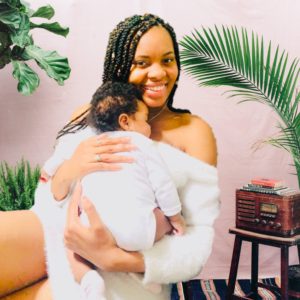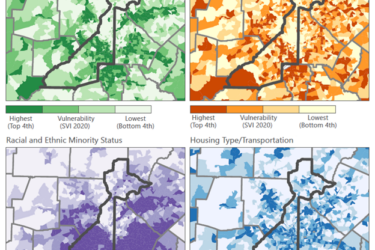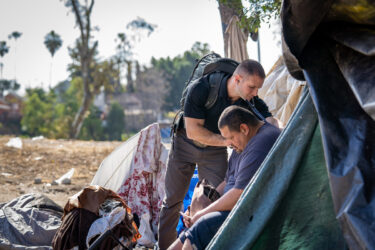
When Jallicia Jolly gave birth to her first child, Rose, in February, she experienced some of the disparities in care she studies and writes about in her academic life.
Her essay published in USA Today, “I survived childbirth during three pandemics – COVID, racism, Black maternal health crisis,” places her own mistreatment at the hands of an anesthesiologist in the context of maternal health care across the country. “In looking back at my own experience giving birth to my healthy daughter, I am reminded of the stories of Black women who have received substandard care in health care systems and whose needs are deprioritized — and didn’t live to tell their own stories,” she writes.
Jolly is a postdoctoral fellow and incoming assistant professor in American Studies and Black Studies at Amherst College, a reproductive justice advocate and a contributing writer to The Washington Post/The Lily. Her work centers on HIV and Black women’s health, particularly the intersection of race, gender, racism, sexual health and inequality.
In this “How I Did It,” Jolly talks about why she decided to write about her experience, how she got it published and the difference between her personal and academic writing.
As a researcher and reproductive advocate, what led you to write about your personal experience?
I wanted to write about the lived experience of medical racism and reproductive violence so other mothers would know they weren’t alone. Not everyone survives, and survivors don’t always talk about it; they have to get on with life. I wanted medical providers to reflect on the violence of the care they often give with immunity. It’s necessary for women of color and Black Women to have more wholesome experiences in so-called systems of care.
Did you always plan to write about your birthing experience?
Absolutely not. I didn’t want to share such a personal experience. But after talking to other women about their birth experiences, I noticed a trend of the themes of disrespect, violation, lack of consent. Black and immigrant women in particular had these experiences and had their needs and interests deprioritized in one of the most vulnerable moments of their lives. These weren’t just isolated incidents or accidents and were connected to the webs of violence and devaluation that has long marked the maternal health system. And this certainly wasn’t “care.”
I was thinking of an origin quote by Audre Lorde that says, ‘Your silence will not protect you.’ I needed a few weeks to process before I picked up a pen and started writing.
What’s been the reaction to your piece in USA Today?
People in communities of color are neither shocked nor surprised. Many have long known the calculated violence of birthing while Black in the United States. They are tired and exhausted from the ongoing onslaught of reproductive violence and medical racism, yet they demand accountability and action. They are frustrated and saddened, yet they mobilize and build movements so that this vicious cycle does not continue.
How did you get published in USA Today?
I’d been thinking about this since February. I wrote the full essay in April before around Black Maternal Health Week. I had a lot of thoughts about the experience and feeling it intensely, I just wanted to write it out. I reached out to the communications office, and they connected me to an editor at USA Today.
Do you use different techniques when writing personal essays, reported pieces and research?
When I write a piece like this, my process is to foreground the personal voices of the people who I’m engaged with in real time. What do they have to offer in their human experiences? What are the connections I see for the broader themes, as opposed to opening up with an already fleshed-out perspective or theory. My ethnographic voice in my academic research makes the transition to writing personal pieces and reporting pieces like this a lot more enjoyable.
The deepest way to be connected to other humans is to really think about how our experiences are connected. I’m very careful to center human life, the lived experience, not statistics, numbers and abstract concepts.
Do you get that pushback to your research documenting these kinds of disparities and, if so, how do you deal with that?
If you write in the public sphere, you will be bombarded with some of that. I am less concerned about the person who’s asking me why I’m focusing on race. I’m very mindful that not everything is coming from an ethical or right space. So I’m less invested in that kind of pushback but try to really be intentional about what pushback is important, how I could use that to hone my craft and to make sure it’s always in service of the people that I’ve invested in advocating for.








